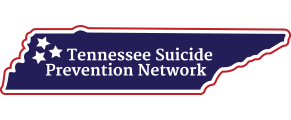Village Behavioral Health, located near Knoxville, TN, provides a multidisciplinary approach to self-injury treatment. We create individualized treatment plans for teens & adolescents.
Self-Injury Treatment
Learn more about self-injury treatment at Village Behavioral Health near Knoxville, TN
Self-harm or self-injury, an act in which you deliberately inflict harm upon your own body, can be a way of expressing your feelings, or a means to distract you from your struggles. Self-harm has helped you cope with many overwhelming feelings and situations and the idea of stopping self-injury may be frightening. It’s hard to give up something that has helped you cope, but you know that it’s time to stop hiding in secrecy and learn to lead a life out loud. It’s time to recover from self-injury.
Village Behavioral Health, a self-injury treatment center in Knoxville, understands that self-injury has been the way you’ve coped with your challenges, and we’re here to offer you the support and skills needed to lead a life free from addiction to self-injury. Our treatment center has helped countless teens through their mental health and behavioral crises and we’re ready to put our experience to good use in helping you break out of self-injury.
How to Help a Loved One
Helping a loved one get treatment for self-injury
If your teen is struggling with self-injury, you may feel a tremendous amount of emotional turmoil – you’re probably angry that they would hurt themselves, you’re frustrated that you can’t stop your child from doing this, and you’re afraid that one day, they may cause serious damage. You may avoid the topic of self-injury with your teen because you’re fearful of making the situation worse. It’s time to approach the topic and get your child the treatment they deserve at a self-injury treatment center. Here are some tips for gently guiding your teen into a treatment center:
Learn about self-injury: There are a number of reasons your teen may self-injure and learning more about self-harm and the root causes for this behavior is important. This will allow you to understand a bit more about the ways your teen is feeling and his or her compulsion to self-injure.
Seek support: Having an adolescent or teen who self-injures can be tremendously hard. Seek support in trusted friends and loved ones who can help you sort through the emotions you’re experiencing. Find a therapist at a treatment center who specializes in self-injury and develop adaptive ways you can cope with this behavior.
Talk to your teen: One of the most important things you can do for your adolescent or teen is to remind them that you love them no matter what. That you’ll support them, no matter what. Talk and really listen to what your teen has to say. If they don’t want to talk, be gentle but persistent about the matter to let them know you’re not going to forget about this.
Why Consider Treatment
Why consider treatment for self-injury at Village Behavioral Health near Knoxville, TN
If you’re engaging in self-injury, you’re probably dealing with a lot of overwhelming feelings that you have nowhere to express beyond hurting yourself. You may have begun to self-injure as a means to cope, but now find that you’re unable to stop. You feel a compulsive urge to engage in self-harm and live in constant fear of your deep, dark secret being discovered. The shame and disgust you may feel after you engage in self-injury may be enough to trigger more self-injury. There is another way to live your life.
A residential treatment center that specializes in treating adolescents or teens is one of the best options for treatment of self-injury. In a residential self-injury treatment center, you’ll be able to escape the stress and triggers of everyday life and begin to focus on what matters most – recovery. Through a number of therapeutic approaches such as group, individual, and family therapy, as well as medication management and experiential treatments, you can learn the skills you need to lead a happy, self-injury free life.
Our Philosophy
Village Behavioral Health philosophy and treatment benefits
At Village Behavioral Health, a self-injury treatment center in Knoxville, Tennessee, our serene campus nestled in the foothills of the Great Smokey Mountains is the ideal place for troubled adolescents. We provide compassionate care for teens struggling with self-injury using a multidisciplinary approach to care that is designed to treat all aspects of a teen as a whole. There should never be a generic approach to treatment of self-injury or other disorders, so each of our clients receives a detailed plan of care for their stay with us. At our self-injury treatment center, you’re home.
Types of Treatment
Types of self-injury treatment offered at Village Behavioral Health near Knoxville, TN
When you come to The Village, located in Knoxville, for self-injury at our treatment center, we’ll begin with a number of thorough evaluations designed to give us greater insight into your struggles. The medical evaluation will allow us to determine if you’re struggling with any medical complications as a result of your self-injury. Your psychiatric evaluation will allow us to determine if you’re dealing with any co-occurring mental health disorders, as there are a number of disorders that occur alongside self-injury. We’ll take the results of these evaluations and sit down with you and your family to create a plan of care for your stay with us that includes all recovery goals.
Medication is provided and monitored by our in-house physician and nurse practitioner at our self-injury treatment center. Medication checks will be done at least once a week and adjustments will be made as needed. You may be placed on medication when you first come to us to reduce symptoms, which will allow you to take a more active role in your recovery. As you learn better coping skills, you may be able to slowly taper off the medication. Other teens may need long-term medication management in order to control symptoms of co-occurring disorders.
Individual therapy is used to provide you with the space to work with a therapist in a private setting to allow you to discuss your self-injury. You may explore the reasons you self-injure, any trauma you’ve experienced, and discuss ways to more appropriately handle stress in the future.
Group therapy is an important part of your stay at our treatment center as it allows you to bond with and work together with peers who are struggling with similar challenges. Groups help you set daily goals, learn new coping strategies, and learn more about controlling behaviors.
Family sessions are incredibly important for you and your family to make a lasting change in your life. For you to get the full benefit of your treatment, your family must agree to be an active role in your recovery. We provide family therapy at our self-injury treatment center each week, and more as needed, in order to educate your loved ones about your illness and recovery. We’ll also provide loved ones with referrals to community resources for their continued healing.
As we treat the whole teen, not simply the symptoms of a disorder, Village Behavioral Health, a self-injury treatment center in Knoxville, works tirelessly to provide you with experiential methods to treat your mind, body, and soul. These include:
- Recreation therapy
- Ropes course
- 12-step meetings
- Crafts
- Music
- Dance
- Drama
- Sports
Continuing Care
Continuing care and levels of treatment for self-injury
During your intake at our self-injury treatment center in Knoxville, we begin to determine appropriate continuing care options for you after discharge. Your therapist will work with you and your loved ones to ascertain potential step-down options that will provide continuity of care. A couple of weeks before discharge, your treatment team will make a recommendation for appropriate aftercare options based on current and future needs. You may step down from our program into an Intensive Outpatient Program (IOP) or a Partial Hospitalization Program (PHP), both of which will allow you to work on your recovery while you gradually reintegrate back into daily life. Some adolescents or teens have made so much progress that they’re ready to return to their community armed with referrals to traditional outpatient therapy and 12-step meetings.











